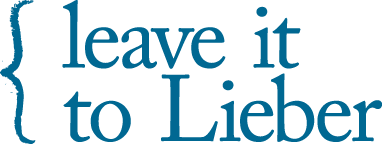Additional information and support
There have been great efforts to advance the understanding of ADHD by a variety of professionals. They share my desire and dedication to support and empower individuals with ADHD. These collective efforts have helped people begin to understand brain function, raised awareness of the complexities of ADHD, and highlighted resources for people to explore. First, let’s take a brief look at ADHD.
What is ADD/ADHD?
Daily challenges of living with ADHD
Limited ability to focus on a task or effectively shift focus
Getting started on and/or completing tasks
Forgetfulness
Creating and establishing daily routines
Effectively managing unscheduled time
Leaving home on time with everything you need
Losing or misplacing things
Difficulty preparing for important tasks
Getting sidetracked
Procrastination unless under the pressure of a deadline
A brief history
ADHD is brain-based condition that can impact many aspects of daily life—responsibilities, careers, relationships and self-confidence to name a few. Decades ago, ADHD was thought to be a childhood condition characterized by physical restlessness: hyperactivity, distractibility, and inattention. However, research has expanded the definition of ADHD to include three different types/presentations: predominately hyperactive (physically restless), predominately inattentive (mentally restless) and combined (both physically and mentally restless). Studies have also shown that approximately 60% of children will carry some of the symptoms of ADHD throughout their life. The degree of interference created by the ADHD varies for each individual and even within families
Because of these scientific advances, parents recognize their own lifelong challenges during their child’s evaluation, and adults are seeking to understand why performing what seems to be simple tasks for others has evaded their mastery. A formal evaluation by a qualified mental health practitioner is the first step. Once formally identified, intervention options identified for ADHD vary by age may include: medication, psychotherapy (individual/couple), school and workplace accommodations and coaching.
How ADHD affects life skills
One of the more recent discoveries is the presence of inconsistent executive function skills. These skills, which are under development until the age of 30, help us regulate our thoughts and actions to accomplish our daily tasks and responsibilities. Executive functions help us plan, prioritize, organize, remember, manage time, see tasks to completion and regulate our emotions. Consequently, these skills impact every aspect of a person’s life, daily roles and responsibilities.
Help from an expert
Given the complexity of ADHD, you'll find it worthwhile to work with a credentialed ADHD coach who has the specialized knowledge and training to help you accomplish your goals.
Websites
add.org
Information, resources and networking opportunities for adults with ADHD
additudemag.com
Articles and resources for adults and children with ADHD and learning disabilities
addwarehouse.com
Books, videos, and other ADHD related merchandise
chadd.org
Education, support, and advocacy for children and adults with ADHD
help4adhd.org
Information about ADHD – check out their “What We Know” fact sheets
Local meetings
Pittsburgh and Vicinity Adult CHADD
Monthly meetings provide educational speakers and discussion
Pittsburgh and Vicinity
Parent CHADD
Monthly meetings provide parents with education and support
Pittsburgh and Vicinity College Student CHADD
Meetings held the last TH, of the month 6-7pm at Western Psychiatric Institute (WPIC) provide educational speakers, discussion and support











